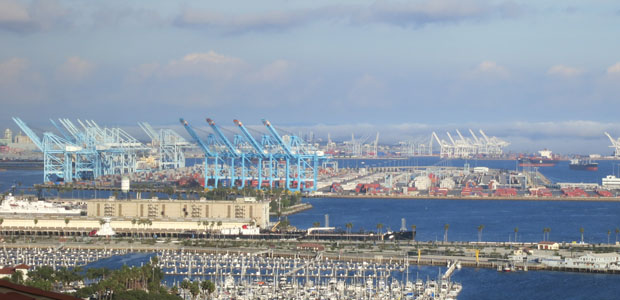
File photo.
Cargo traffic increases in December at the Port of Long Beach (POLB) capped off one of the busiest years in the port’s history, and just the third time the port’s traffic has topped seven million twenty-foot equivalent units (TEUs) during the year, the port announced today.
Overall, cargo volume jumped 5.4 percent in 2015 compared to 2014, despite issues with congestion at the start of the year, according to a release issued by the port.
“We’re gratified to see the business growth — we worked diligently over these past 12 months to recover from a very challenging start to the year, resulting in record volume and productivity gains and the strong and steady return of diverted cargo,” said POLB CEO Jon Slangerup in a statement. “We credit terminal operators, labor, shipping lines, cargo owners and our local community with pulling together to turn things around.”
CEO Slangerup is expected to speak more about the port’s busy year and its future at next week’s State of the Port.
Despite the slowdown at the beginning of the year, due to stalled negotiations between the International Longshore and Warehouse Union (ILWU) and the Pacific Maritime Association (PMA), the final two quarters of the year boosted the year’s overall cargo traffic numbers to rare heights.
December cargo volume increased 5.1 percent compared to December 2014, with imports increasing 7 percent to 296,002 TEUs. Exports dropped 4.1 percent to 126,118 TEUs, and empty containers for the month rose 9.5 percent to 174,328 TEUs, according to the release.
The increase was slightly below November’s uptick in traffic, coming in with a cargo volume 6.6 percent higher than November 2014.
The port stated that more than two million TEUs moved through the port in July and August, making for the POLB’s busiest quarter in its history.
In 2015, 7.19 million total TEUs worked their way through the port, with imports rising a total of 3.1 percent and exports falling 4.9 percent.
“The strong dollar continues to favor imports and discourage exports, resulting in more empties being sent back overseas to be refilled with goods,” stated the release.
For more information regarding cargo traffic, visit the POLB website, here.

